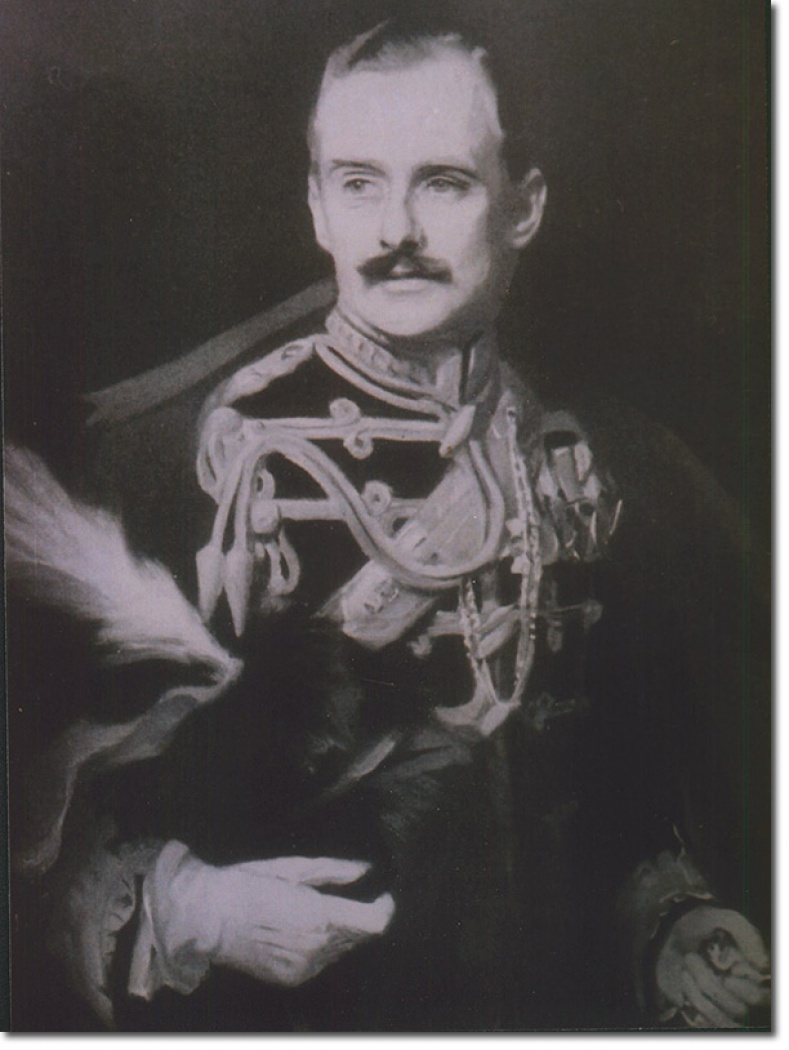
Joicey, Hugh Edward, Baron
1881-1966
Army Officer and Colliery Owner
Hugh Edward Joicey, the 3rd Baron Joicey, was the second son of James, 1st Baron Joicey (1846–1936). He married Lady Joan Katherine Lambton (1893-1967), youngest daughter of Frederick Lambton, 4th Earl of Durham. He succeeded to the title in 1940 following the death of his elder brother, the 2nd Baron, James Arthur (1880-1940). Hugh and Joan had two sons: David Hugh (1922-1943), who was killed in action at Salerno during World War II, and Michael Edward, the 4th Baron Joicey (1925-1993).
The Joicey family became wealthy and elevated in social status through coal mining in County Durham. Hugh’s father, James, was chairman of James Joicey & Co., founded in 1831 by his uncle. James rose from the position of office clerk to the first rank of colliery entrepreneurs, earning the nickname ‘Old King Coal’. The firm owned and operated several collieries in West Durham, including Beamish and Tanfield. Following the merger of the Joicey business in 1924 with Lambton and Hetton Collieries to form Lambton, Hetton and Joicey Collieries Ltd., the firm had a combined output of 5 million tons per annum and a workforce of 21,000. James, a staunch Liberal in politics, became Member of Parliament for Chester-le-Street in 1885. He held the seat until 1906 when he was elevated to the peerage as Baron Joicey of Longhirst and Ulgham in Northumberland. He invested the profits of coal mining in land, buying estates in Northumberland: Longhirst Hall (1887), Ford Castle (1906) and Etal Manor (1908). The combined Ford and Etal estates, spanning 15,000 acres, remain the seat of the Joicey family.
Hugh Joicey began his career as an army officer, winning a commission as second lieutenant in the 14th Hussars in 1900. He fought in the second Boer war in South Africa in 1901 and was promoted to lieutenant in 1902. He served in World War I with the rank of lieutenant colonel and was awarded the Distinguished Service Order (DSO). Following the war, he served as a Justice of the Peace and in 1933 as High Sheriff of Northumbria. His elevation to head of the family in 1940 must have come with mixed feelings. His brother James had been groomed to take over the family business. He had been managing director of Lambton and Hetton Collieries immediately prior to the merger with James Joicey & Co. and then served as his father’s deputy before becoming chairman in 1936. It was only then that Hugh joined the board, succeeding his brother as chairman in 1940. He remained in this capacity until the nationalisation of the coal industry in 1947 when the owners of Lambton, Hetton and Joicey Collieries were awarded £1,222,000, equivalent to about £50 million today, in compensation for their loss. Hush was also chairman of Albyn Line, a small steamship company established by his father.
Hugh and Joan Joicey established the Joicey Trust in 1965, just before Hugh’s death, to help support communities in the North East. The trustees are currently led by Lord James Michael Joicey, the 5th Baron, who was appointed to the Court of Newcastle University in 2005. The Trust makes grants to charitable organizations across the North East. In April 2017 it had investments worth £8.6 million and in 2016/17 made grants totalling £227,450 to a wide range of grass-roots community groups, including youth, sports, arts, medical, disability, church and refugee charities.
References
Ford and Etal. (2018). Businesses on the estate, Available here (Accessed 07/03/2018).
Grace's Guide (2016). Lambton Hetton Joicey Collieries, Available here (Accessed 07/03/2018).
Luscombe, S. (2018). The Hon Hugh Edward Joicey DSO, The British Empire. Available here (Accessed 07/03/2018).
Newcastle University. (2018). Executive Office - Court Membership - Lord (James Michael) Joicey (5th Baron Joicey of Chester-le-Street), Available here (Accessed 07/03/2018).
The Joicey Trust (2018). The Joicey Trust, Available here (Accessed 07/03/2018).
The Shipslist. (2018). Albyn Line, Sunderland 1901-1966, Available here (Accessed 07/03/2018).